
10 Oct What if We Supported Depression Like we Support Breast Cancer? End the Stigma, World Mental Health Day
October is breast cancer awareness month, & today, Oct 10, is World Mental Health Day; it’s also one year since I started chemotherapy to beat triple negative, or the most aggressive type of, breast cancer.
It's the perfect day to talk about the vast differences between how we support cancer warriors and how we support (or fail to support) mental illness warriors.
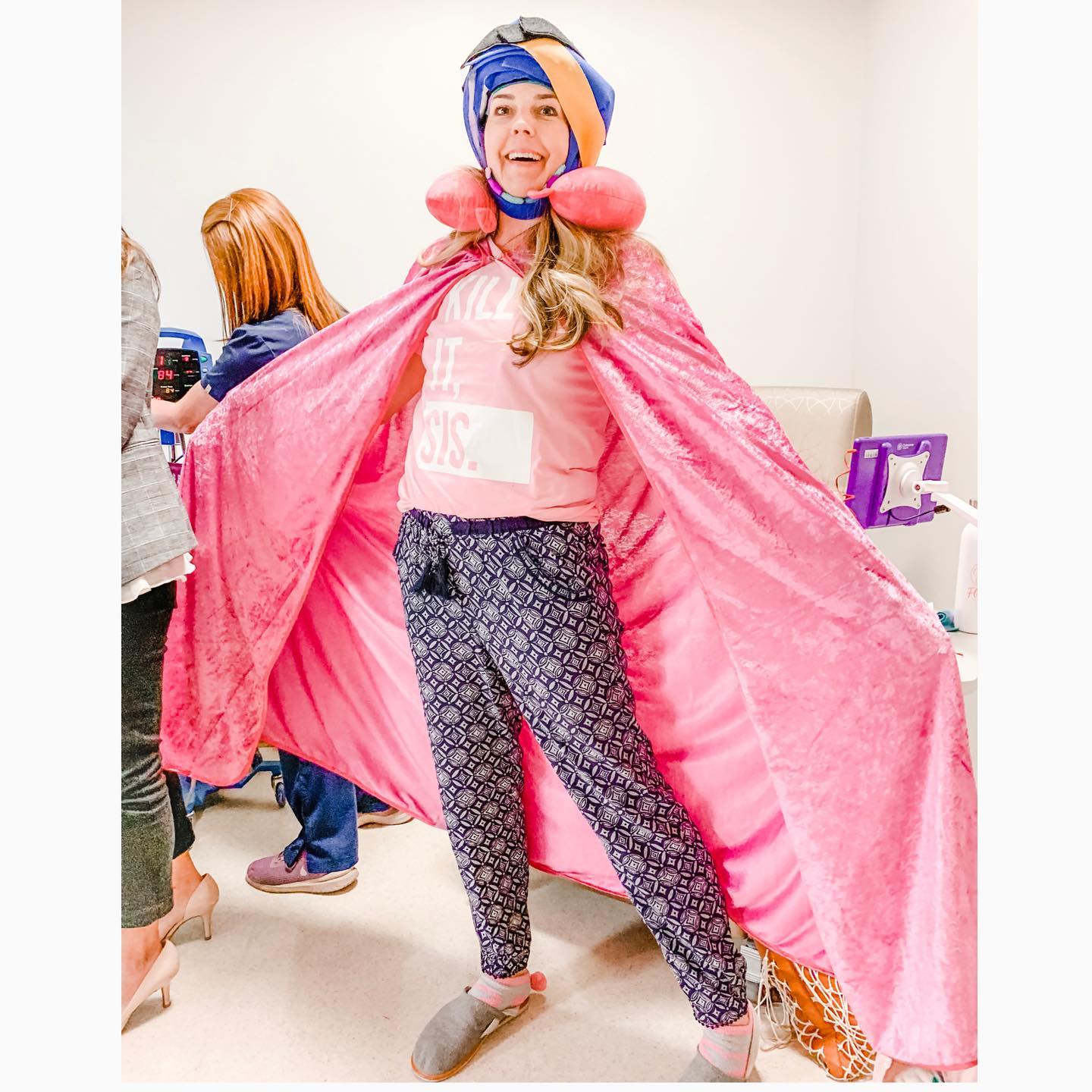
One year ago today, starting chemotherapy, cold-capping to save my hair, looking brave, hiding the incredible fear inside.
I Am the FACE of DEPRESSION (& ANXIETY)
In December 2014 I wrote a post titled, “I am the FACE of Depression (& Anxiety).” It contained a picture of me holding a sign with these same words. I wanted to get people to open up about mental illness, I wanted to show they’re not alone and didn’t need to be afraid, I wanted to start an ongoing discussion to reduce the stigma, I wanted to start a revolution.
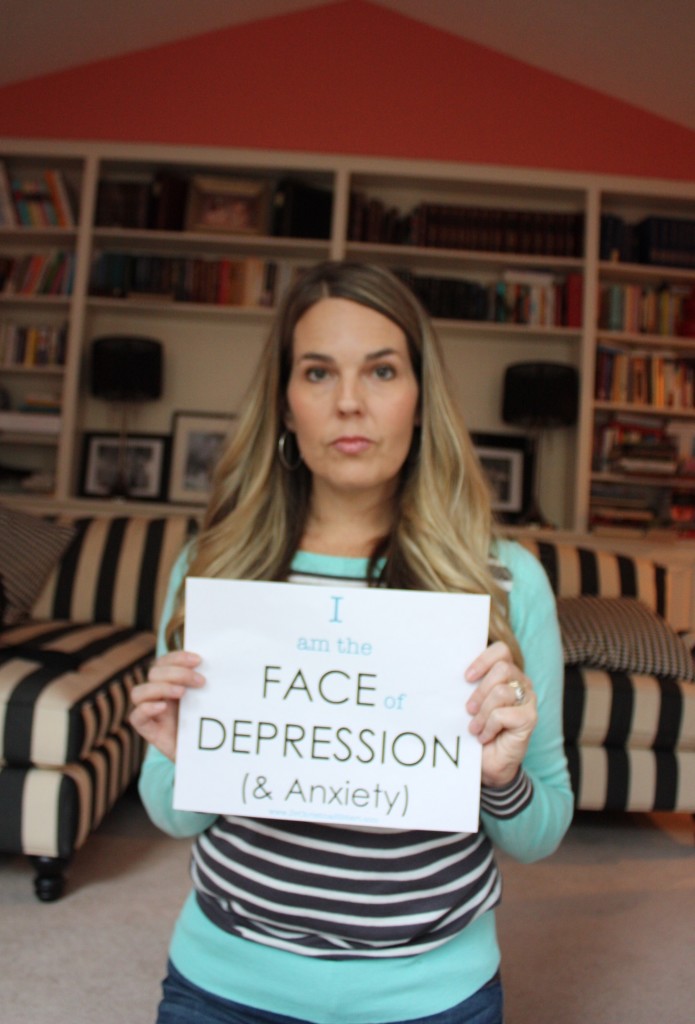
I started the "I am the FACE of Depression" campaign to get people talking. It's okay to admit you struggle with depression. It doesn't define you.
I don’t think a revolution ever began, but for a short time I shared others’ stories of depression, anxiety, and mental illness. I gave them a voice through my blog, and I gave us a start to the discussion that must ever remain ongoing. I gave us a community.
Now, I've been faced with a different challenge...
To be going through chemotherapy, to have had a double mastectomy, hysterectomy, breast reconstruction with expanders and then implants; then, to have the right, and then left, implant removed, all while going through chemotherapy and cold-capping to save my hair was ROUGH. (Follow my journey here and/or on Instagram and Facebook.)
But you know what was ROUGHER?
My daughter struggling with depression, anxiety, panic, and suicidal thinking WHILE I was going through all that. Not being well enough to be there for her, to help her with the daily struggles she was facing in the ways I would normally do, because I was too sick.
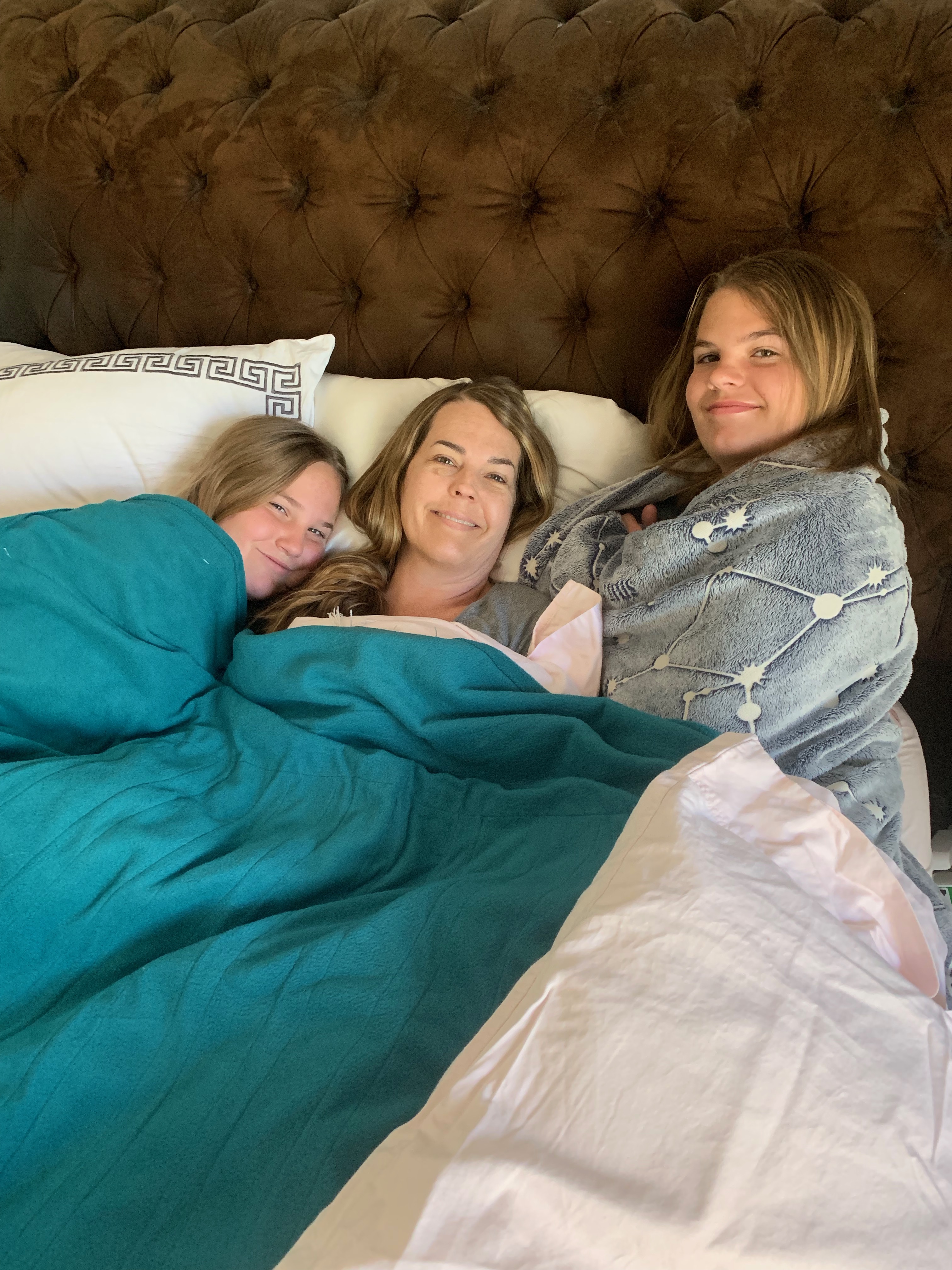
A rare photo after chemo, with my daughters. As my older one struggled, I felt more and more unable to help her through the hell that is chemotherapy.
I began to see clearly the stark contrast between when I told my family, friends and followers, “Hey, I am the face of depression & anxiety,” or “I am the face of postpartum depression,” and even, “My daughter is the face of depression, anxiety, & suicidal thoughts,” and when I said, “I am the face of breast cancer."
One brought an outpouring of love and support; the other brought nothing of the sort.
There was such a stark contrast...
...between my experience with battling breast cancer and my past experiences battling mental illness.
There was an even starker contrast between how people were reacting to my breast cancer diagnosis and how they were NOT reacting to my daughter's mental health crisis.
My daughter began to resent me, because here I was receiving gift after gift, kindness after kindness, as I fought breast cancer, and yet there she was receiving very little in the way of support or love or care from others.
Yet she was “fighting” too.
We were both fighting for our lives, just in different ways.
That’s what struck me about my “I am the FACE of Depression” campaign and my “#BreastCancerWarrior” journey; in BOTH I was fighting for my life, but only with breast cancer did others acknowledge it.
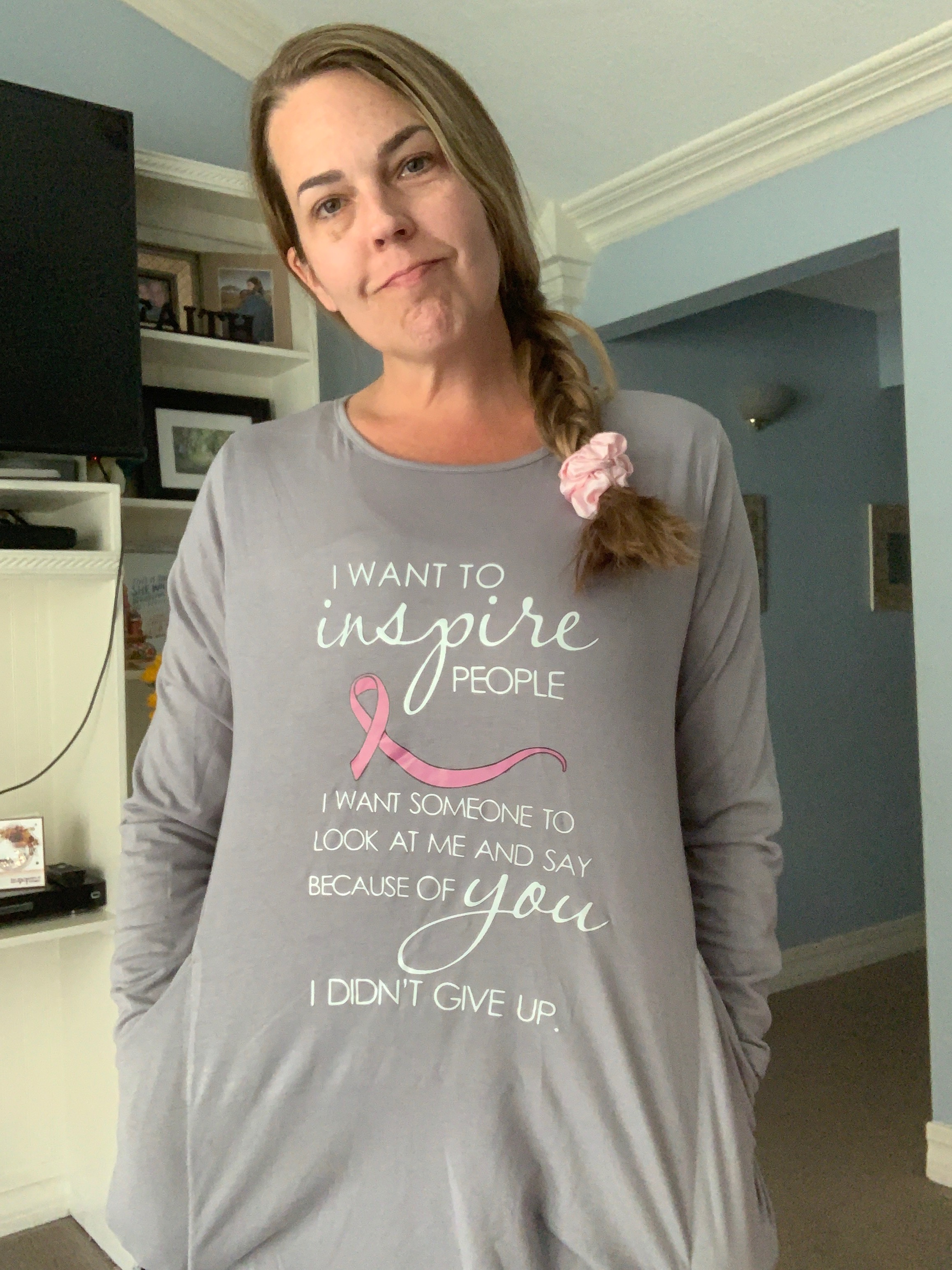
So sick from chemotherapy, smiling through the suffering, wishing I could make a difference in the world again.
Look at the differences and judge for yourself.
- Breast Cancer: I received card after card, gift after gift, flowers, paintings, handmade quilts, and so much more all to help me know I was not alone in my breast cancer fight.
- Depression & Anxiety: No cards, gifts, flowers, or meals. Just a few well-meant but ill-placed comments like, “Seeing you in that picture made me feel sad,” or “I hope you feel better!” or “Just think positively; don’t let depression get you!”
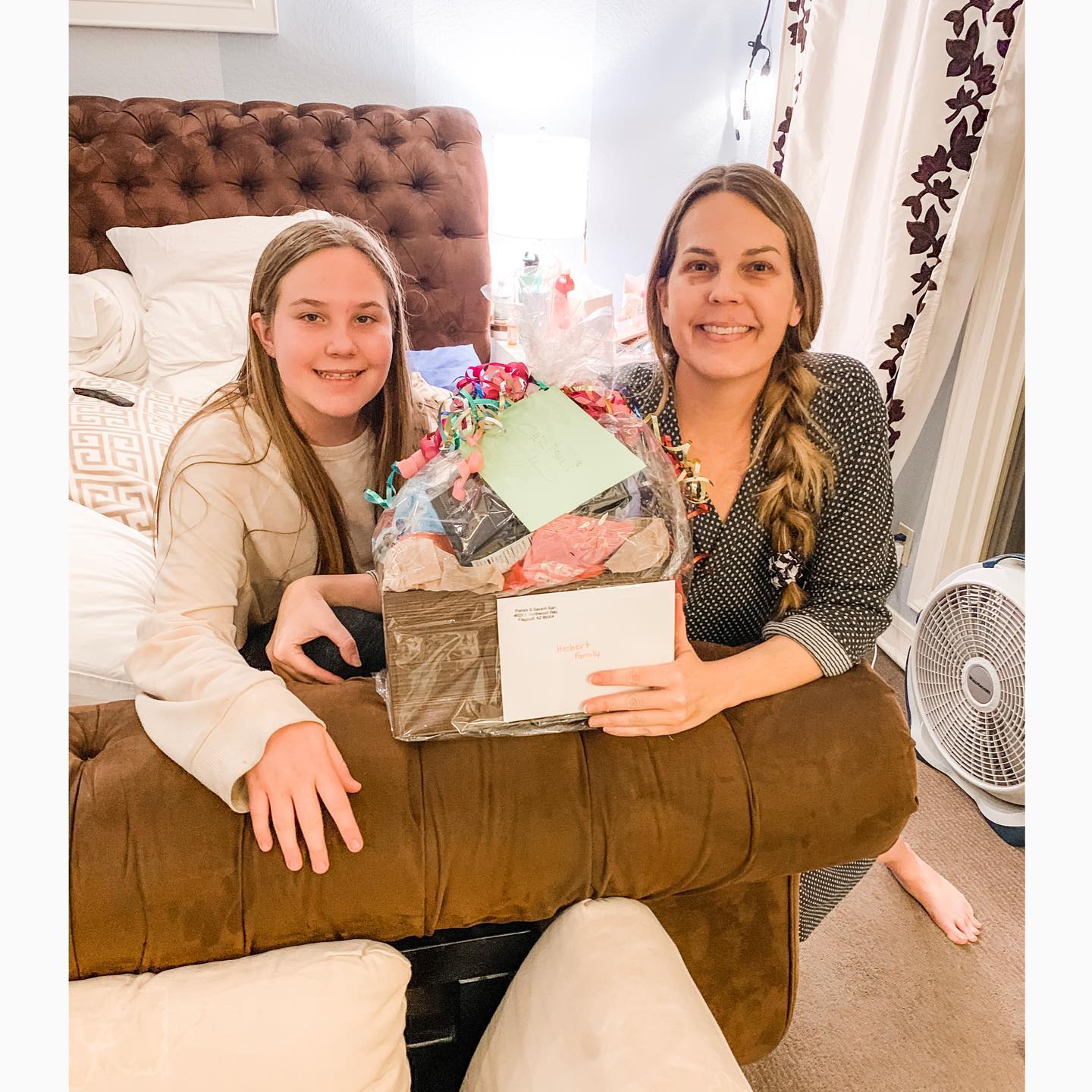
Receiving packages, meals, visits, phone calls; all helped lift me tremendously. Why don't we do this when someone's suffering from depression?
- Breast Cancer: I had a community of support people offering help with my kids, cleaning, meals, and emotional support. I have never in my life had so many texts, phone calls, DMs, and social media comments reaching out to see how I’m doing, to offer love and prayers, and to let me know, “You’re not alone.”
- Depression & Anxiety: I not only felt totally alone (a major aspect of depression); I WAS alone. No one reached out. No one checked on me to see how the “fighting depression” was coming along. No one said they were cheering me on as I fought, sending love and prayers, or offering help with my kids or home or self.
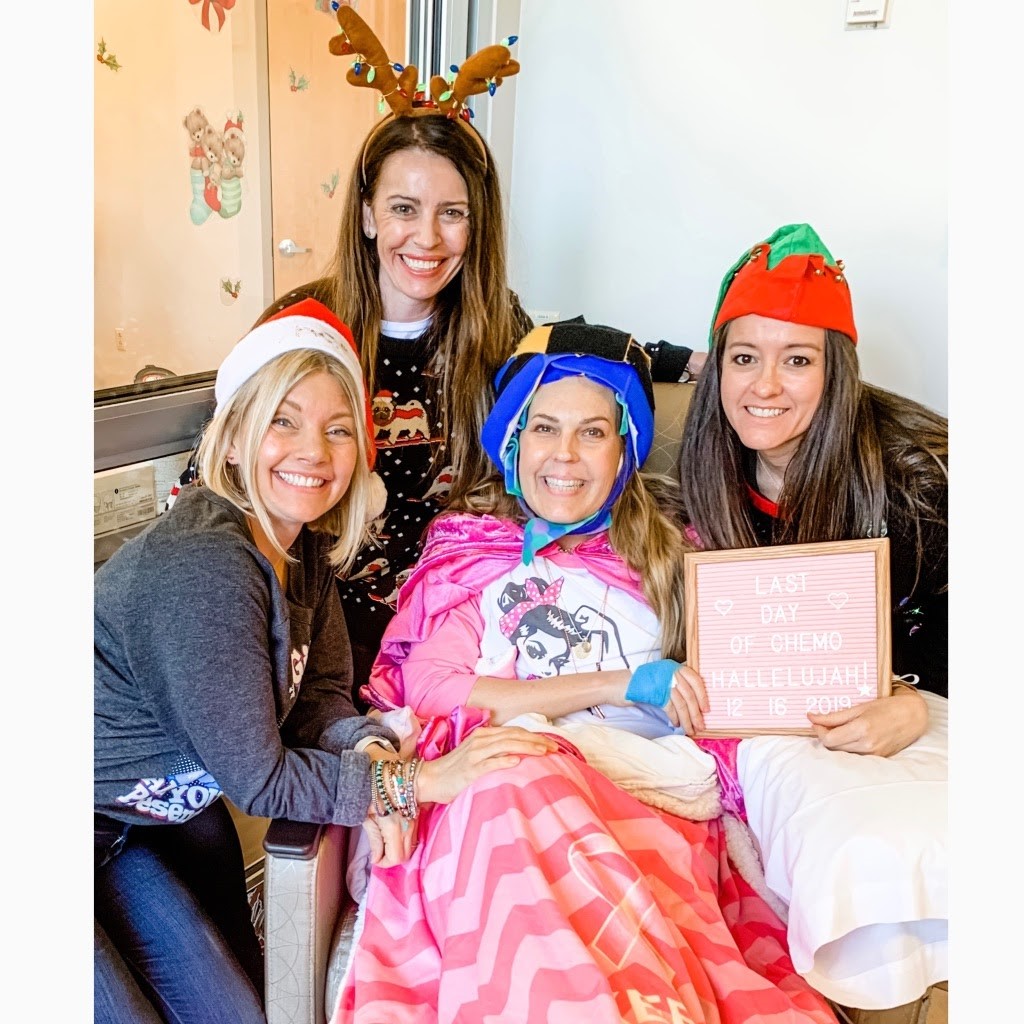
My last day of chemo, just before Christmas, surrounded by friends. Why don't we surround those who are depressed?
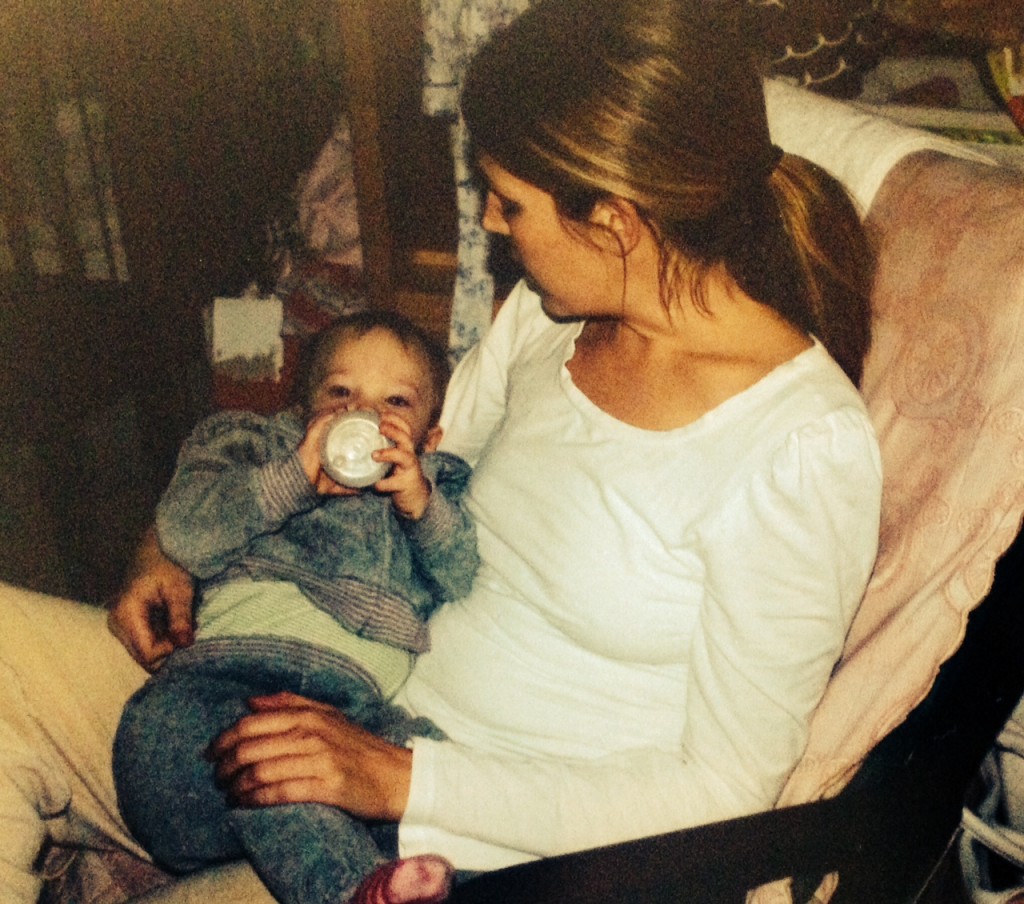
Alone, singing & rocking my youngest, Sydney. Though I was able to breastfeed her, I introduced a bottle early on. I knew I needed it to help me survive postpartum depression.
- Breast Cancer: People don't hesitate to ask how I'm doing, what it's like, what's coming next; they don't hesitate to TALK ABOUT IT. I don't have to "seem fine," because it's obvious I"m not, and everyone "gets it."
- Depression & Anxiety: No one TALKS ABOUT it. EVERYONE hesitates to ask, "How are you REALLY doing?" You DO feel like you need to "seem fine," because no one seems to know what to say or do when you're not. It feels like no one really gets it, and you feel terribly alone.
- With my daughter, friends were dropping like flies, the only thing people seemed to check in on with her was, "How is your mom doing?" which only made her feel more isolated and misunderstood. Well-meaning teachers and a few of my friends tried to reach out to her after I explained what was going on, but she felt as alone as she'd ever been in the time of her biggest struggles.
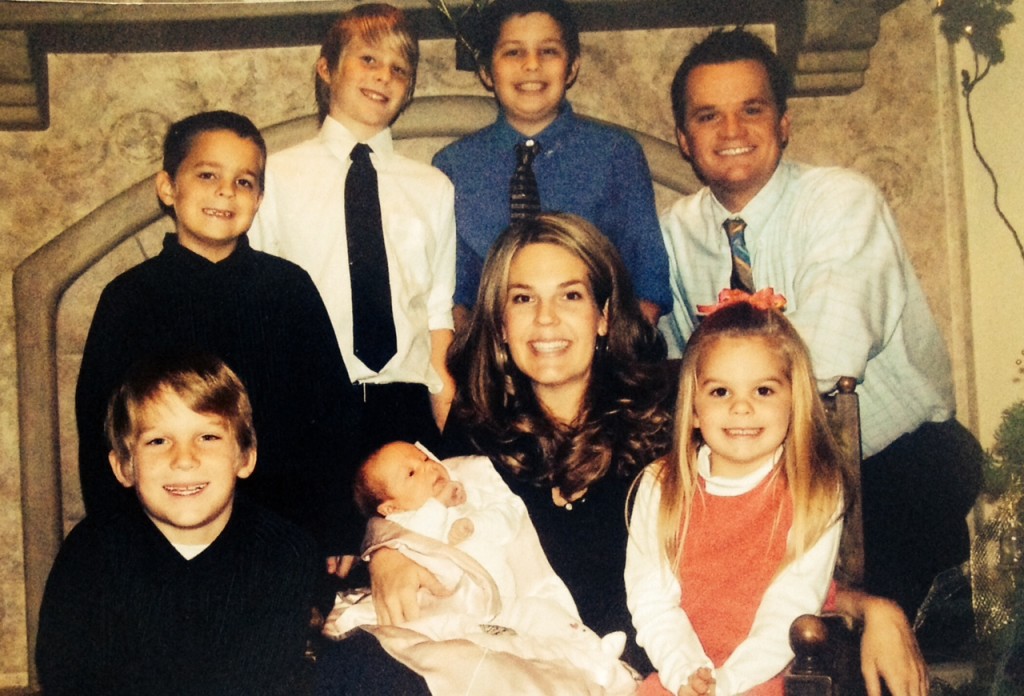
Our family christmas photo, 2007, taken just three weeks after I gave birth and inherited my two nephews, going from 3 to 6 kids. I wrote about this in "This is How We Grow." Don't I look "fine?" Look closer. I definitely wasn't.
Why don't we acknowledge, ask, and offer support for mental illness like we do for cancer?
For one, we’re afraid of death.
That's why, I believe, so many reach out when it's a cancer diagnosis.
When we hear of someone getting a serious life threatening disease, illness, or accident, we feel the fear they must be feeling as they face their own mortality. In a secondhand way, it makes us confront our OWN mortality.
We want to do something with this discomfort and fear that we feel, and so we reach out and (appropriately) support the cancer survivor, warrior, thriver.
The other major reason is stigma.
Cancer doesn't have the stigma that mental illness, like depression carries. It's essential for cancer warriors to reach out, ask for, and rexceive help. It simply cannot be done alone.
But with depression we're afraid to even admit we're struggling. Even more so, we're afraid to reach out to others and ask for help, because of how people will resond, what they will think, and what it could potentially "mean" about us.
We MUST start talking about the stigma of depression if we are ever to prevent mental illness from taking lives like cancer does.
If I’ve lost too many loved ones to breast and other cancers (both grandfathers, my brother-in-law, close friend, great aunt, and my youngest sister, to name a few), I’ve also lost too many loved ones to depression.
My closest sister, my dear friend Jody, my new friend Naomi, & my children’s 2 friends from school all died of depression.
They couldn't see a way out, so they took their own lives. I'm raising my sister's children because of depression, alcoholism, and suicide. It’s too many.
Depression can be just as deadly as breast cancer, and we’re living in a time of fear and uncertainty that is leading to more and more depressed adults, young adults, teens, and, yes, children.
Will we sit back and do nothing?
Or will we create the kind of support community for those suffering from depression & other mental health disorders that we so generously create for those suffering from cancer?
We mustn't ignore the warning signs, cries, and pleas of those around us suffering from mental illness just because we are uncomfortable with it and don't know what to do.
The smallest gestures can make a huge difference to those struggling with health AND mental health issues.
We have to start somewhere...
And acknowledging and talking about it is the best place to start.
Once we make this conversation an open and free one, we begin to: 1) reduce the stigma of mental health issues, 2) better understand the needs of those who are suffering, and 3) offer better support, love, and help to those in need.
I know one blog post won't change everything...
but might it start the discussion?
Might that discussion continue until we have some solutions?
My next post will include some of the solutions I've discovered as I've compared my breast cancer experience with my depression experiences and those of my daughter.
In the meantime...
Share your thoughts on this below.
How have you seen this great disparity between acknowledging and support physical health issues compared to mental health issues?
What has your personal experience been?
Do you have ideas about how to make this better?
I want to hear it all.
Let's use this Breast Cancer Awareness month and World Mental Health Day to do something that MATTERS, to make a true and lasting difference, or at least, to begin.

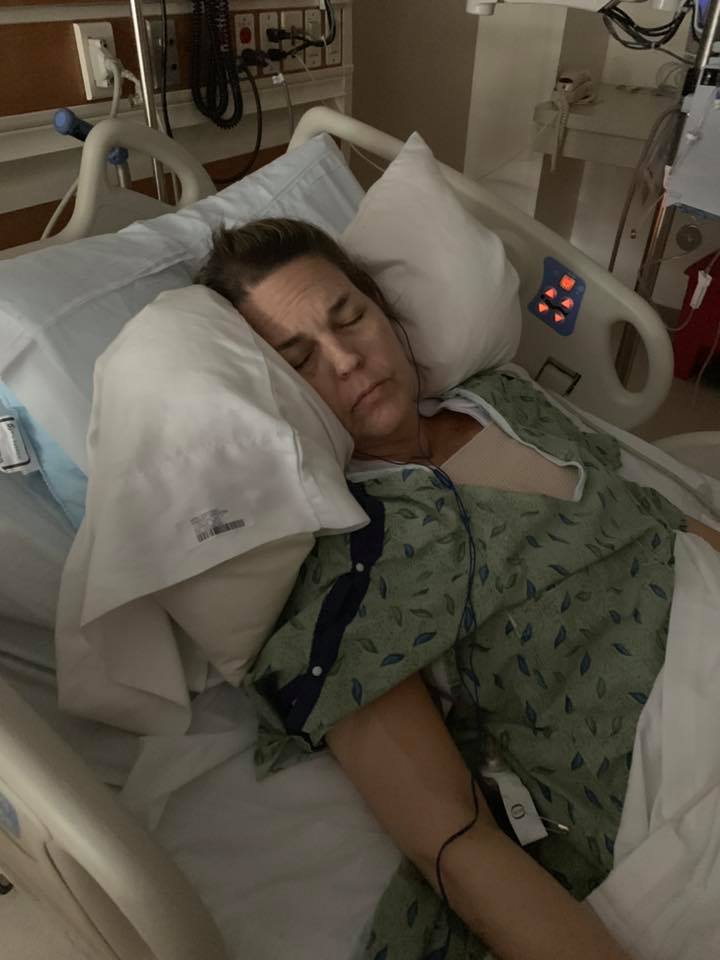

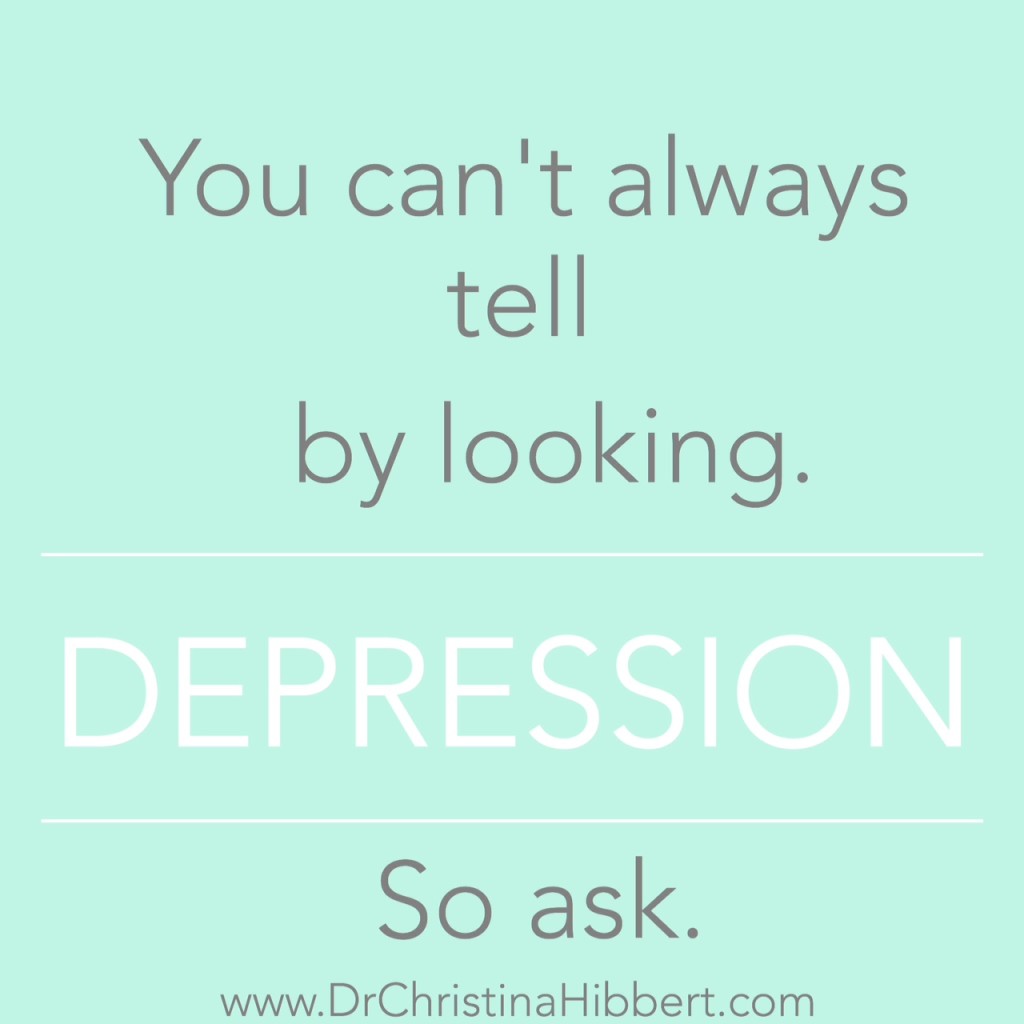
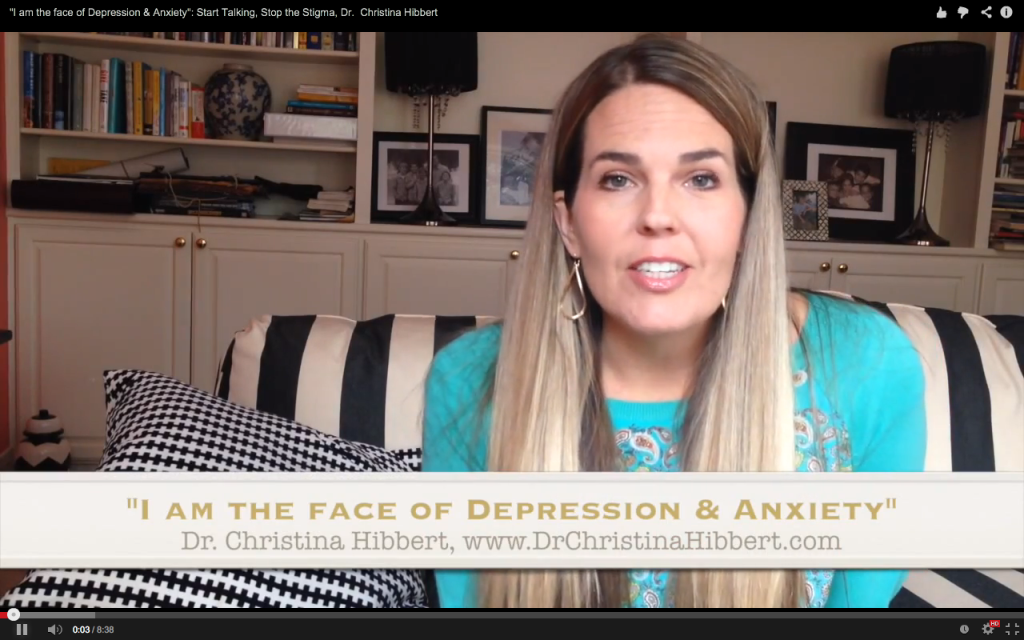
I have struggled for 20 plus years with depression, anxiety, agoraphobia, and panic. Nope, nobody sends cards for that. Nobody even wanted to talk about the babies I lost that exacerbated the mental health issues to the point of 2 suicide attempts. BUT know that I understand and respect your struggle and I am not embarrassed by my diagnoses. Even as some men I dated thought it was all an act! Please! Nobody wants to feel this way. So I acknowledge your struggles they are very real and very debilitating. All we can do is listen to our drs and take comfort knowing it’s not just us. Millions suffer as we do.
Thank you for sharing your experiences, Susan. I believe the more we share and talk about this, the more others feel they can do the same. It’s brave and makes me feel such love for all you’ve been through. You’re so right–millions suffer as we do. I’m hoping we can get more talking about it. xo
My daughter also suffers from depression as I go through breast cancer. It is a great contrast. I also see a great contrast among the health care providers and their approach. There is not a clear pathway of how to move forward. It is frustrating to all.
Thank you for sharing your experience. It’s the toughest thing when our children are suffering, especially while WE suffer, and I agree–many providers take a “hands off’ approach when you’ve got a physical illness and mental health struggles, kind of like the physicians say, “I deal with the physical stuff” and forget the mental, and the mental say, “I deal with the mental stuff” and not the physical. Finding a way forward is essential yet so many have struggle to do so on their own. Sending love to you.
I have raised two grown boys and recently received permanent custody of my great niece who is almost two years old. I struggle with depression and anxiety. It has gotten worse since the custody and us moving to Tucson and us changing jobs. I feel so alone. It gets exhausting trying to keep it all together. Love your post. It is so true. I wished I had the support I need for depression but it is looked upon so different. It keeps me from talking to people because I am sure they are tired of listening to it. I know my husband is.
I am so sorry for all you have been through. It is a LOT, and especially difficult when you don’t have the support you need. I am continually wracking my brain trying to find a way to change the world’s view on how to support depression and anxiety. One day, I hope it will be like supporting those with cancer. But I know it will take a lot of personal effort on the part of those around us to accept their fears and uncertainties with depression in order for this to happen. I know that feeling of “stop talking about it.” I feel that too, when I’m depressed. I have found, often, that when I am depressed the only one I can really count on is my own therapist. Sending love to you.
Dr. Hibbert, thank you so much for sharing your personal insights on this topic. The contrast in support is considerable and your examples may help people understand a little better how to support a depressed person in their life.
I’m glad you talked about the resentment one can feel when, say, only physical disabilities are met with waves of support. I never want to invalidate or reduce another person’s pain but when one’s needs aren’t being met with compassionate support offered by others, then it can be difficult not be a little resentful when others are receiving such overwhelming support.
For emotional distress or depression to take a front row seat, it seems like a tangible event is required like the death of a loved one. Of course their pain is deep and real and they need that support but I’m over here thinking – why isn’t mental illness recognized and supported like when my friend is on 72 hour suicide watch or if I haven’t shown up to my congregation in 2 months because I’m struggling with depression?
Recently, I’m trying to figure out how to make my depression a more regular part of back and forths with friends but I definitely feel the stigma. “Hanging in there” or “fine” seems to be a lot more socially acceptable, even to a group of loving, Christian friends, than regularly saying “I’m struggling today” or “I had a hard time coming today for fear I would be asked questions about how I’m doing and I would just break into tears”.
How do we make these conversations more acceptable?
Anyway, Thank you again for talking about it. The more we talk – the less stigma is attached.